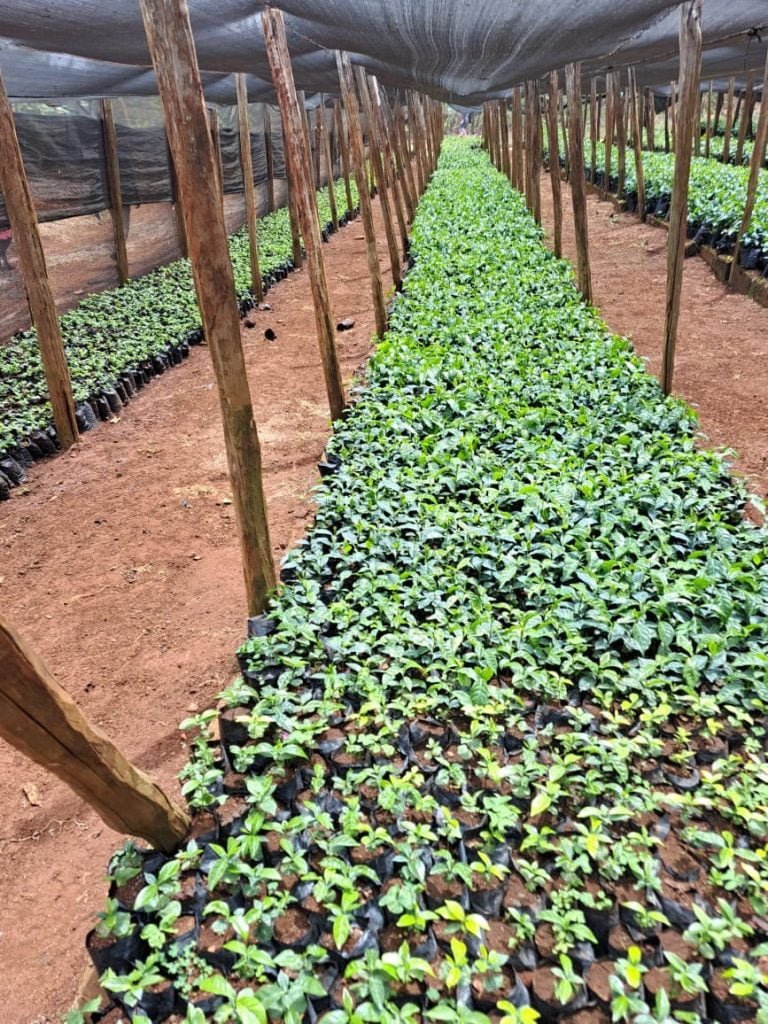The Kenyan government has announced plans to distribute at least 500 million coffee seedlings to farmers in 2025 as part of a comprehensive initiative to revive the country’s ailing coffee sector. The move is aimed at expanding coffee acreage and increasing national output, which has significantly lagged behind neighbouring countries in recent years.
The seedlings will be distributed through primary coffee cooperatives, with 300 million seedlings sourced from the Kenya Planters Cooperative Union (KPCU) and an additional 200 million from Uganda. Farmers have been urged to collaborate with their county governments and submit detailed proposals specifying the seedling varieties they require. This approach is designed to ensure that the distribution is aligned with the specific needs of each cooperative.
To support this large-scale seedling distribution effort, the government will deploy two coffee extension officers—one male and one female—in every ward across all 47 counties. These officers will focus exclusively on coffee farming and will undergo training at the KPCU to enhance their capacity to provide expert support to coffee growers.
The introduction of ward-level extension officers is expected to address long-standing gaps in technical support for coffee farmers, which has been a key contributor to the decline in coffee productivity. By equipping farmers with both the right planting materials and the necessary agronomic knowledge, the government hopes to restore Kenya’s position as a leading coffee producer in Africa.
Officials highlighted the need to rejuvenate Kenya’s coffee farms, many of which are populated by ageing bushes that have exceeded their optimal production lifespan. Coffee plants are typically most productive for about 20 years, and a significant proportion of Kenya’s coffee trees have passed this age, contributing to low yields.
Last year, Kenya produced approximately 50,000 metric tons of coffee, a figure dwarfed by Uganda’s 400,000 metric tons and Ethiopia’s 750,000 metric tons. The current reforms aim to boost Kenya’s annual production more than tenfold by encouraging the use of high-yielding, disease-resistant coffee varieties developed by the Coffee Research Institute and KPCU.
The coffee reforms form part of a broader strategy by the government to revitalise the cooperative movement and restore confidence among farmers who have, in the past, faced mismanagement and losses. Farmers are being encouraged not to be swayed by negative narratives and to actively participate in the reform process, which is expected to bring long-term benefits through improved incomes, higher quality production, and stronger linkages with domestic and export markets.

